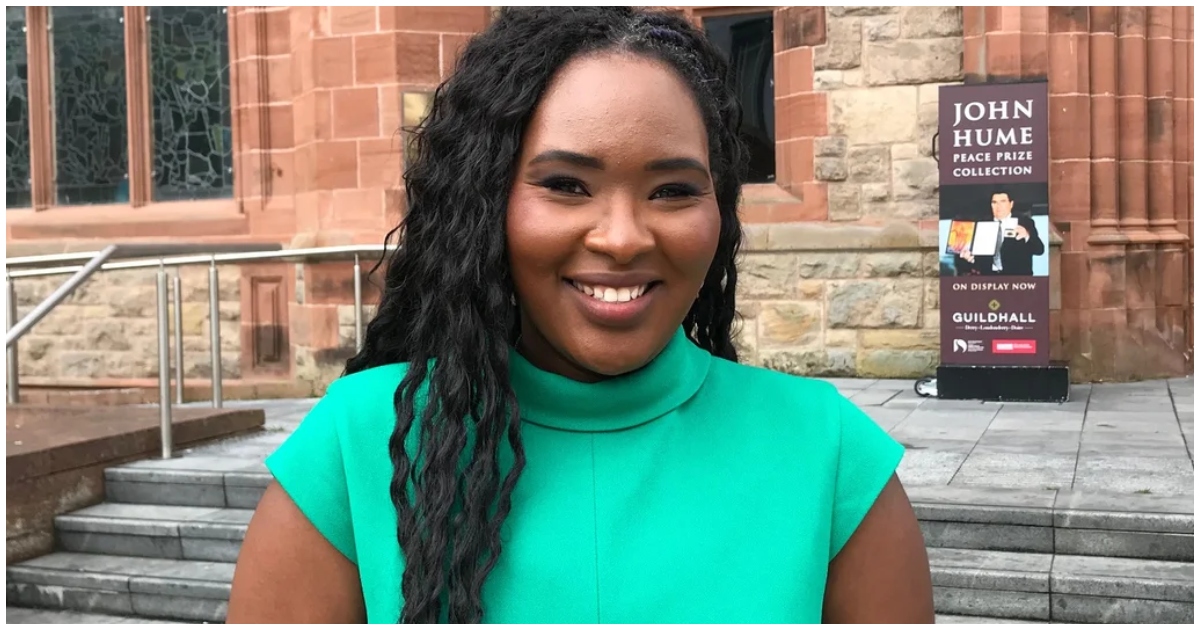Lillian Seenoi-Barr, the first black Mayor of Derry City and Strabane District, is facing unprecedented challenges. As riots erupt across the UK, Seenoi-Barr stands firm against racism and misogyny in leadership. Her experiences shed light on the struggles faced by women of color in positions of power.
Riots Highlight Deep-Seated Issues of Racism and Hatred
Recent unrest in Belfast and other UK cities has brought long-standing tensions to the surface. These events serve as a painful reminder of the racism that continues to plague society. Seenoi-Barr, as a community leader, has witnessed firsthand the destructive impact of such unrest.
“The riots have highlighted how easily fear and misinformation can incite violence,” Seenoi-Barr notes. She emphasizes the critical need for leaders to speak out against hate in all its forms.
Unprecedented Hate Targets Northern Ireland’s First Black Mayor
“The level of hate I’ve encountered since becoming mayor has been unprecedented,” Seenoi-Barr reveals.
The mayor faces a barrage of racially motivated attacks and misogynistic messages. These attempts to dehumanize and undermine her have garnered international attention. News of the abuse has spread across continents, making headlines in Africa, Canada, Ireland, the UK, and the US.
Despite the onslaught, Seenoi-Barr remains resolute. She chooses not to engage with the hateful messages, stating they don’t deserve her time.
Women of Color in Leadership Face Unique Challenges
Seenoi-Barr’s experience echoes that of Anna Lo, a former MLA from the Chinese community. Lo was forced to leave politics due to relentless racial abuse. Their stories highlight the hostile environment often faced by women of color in leadership roles.
Women of color in positions of power face a unique form of scrutiny. Their qualifications and contributions are constantly questioned. They’re often portrayed as aggressive, incompetent, or undeserving.
Media’s Role in Shaping Narratives About Women Leaders
The media plays a crucial role in shaping public perceptions of women leaders, especially those of color. While local media in Derry has been fair, some regional and national outlets have resorted to devaluing and demonizing women of color in leadership.
Seenoi-Barr has faced scrutiny not only for her work but also for her appearance. Comments about her wardrobe and an obsessive focus on her looks often overshadow her daily work as mayor.
Call for Unity and Careful Leadership in Addressing Sensitive Topics
Seenoi-Barr stresses the importance of careful language when discussing sensitive topics like migration. She warns that divisive language can have real-world consequences, inciting hatred and violence against vulnerable communities.
“Leaders must be mindful of the power they wield with their words,” Seenoi-Barr advises. “They should use that power to unite rather than divide.”
A Commitment to Building a More Inclusive Society
Despite the challenges, Seenoi-Barr remains committed to her role and to speaking out against injustice. She sees her experiences as part of a broader issue of how society treats those who are different and who strive to make a positive impact.
“I refuse to be silenced or deterred,” Seenoi-Barr declares. “I will continue to speak out, not just for myself, but for all those who face similar challenges.”
Her goal is to build a more inclusive society where leadership is valued for its substance, not its appearance, and where everyone is given the respect and dignity they deserve.





